This Is How You Introduce Characters: Breaking Down the Opening of 'Beautiful Girls'
The first ten minutes of this classic '90s ensemble drama should be studied by all filmmakers - but especially screenwriters
Beautiful Girls (1996) is a perennial favorite in my house. Directed by the late Ted Demme, it belongs to a type of coming-of-age drama about arrested development in adulthood. In it, Willie, a piano player trying to make it in the city, decides to return home for his tenth high school reunion…but really, he’s running away from a relationship and the emotional peril of “growing up”.
This anxiety around growing up is Beautiful Girls' theme and permeates the lives of many of the characters - especially Willie and his friends Tommy the Birdman (a snowplow business owner who can’t let the glory days of high school go) and Paul (general loser going nowhere).
Let’s look at the first ten minutes of the film, similar to how I did with the opening of The Matrix (“How to World Build Like a Wachowski”). The reason being that the film packs more character work into these ten minutes, including setting up arcs and theme, than most writers put into whole films. We’ll go character by character, including discussing differences between what’s on the page and what showed up on the screen.
But this time, I’m going to do this breakdown with a twist. I’ve asked the film’s screenwriter Scott Rosenberg to join me for this week’s artist-on-artist conversation to answer some questions about his work and what went into writing the film’s screenplay - which turned out to be even more personal than I expected. You can read this chat here.
Willie
First, we meet Willie (Timothy Hutton) in the shortest introduction of the film. He’s our central protagonist, so this brevity seems counterintuitive. But consider what we learn in just ninety or so seconds onscreen:
Willie plays piano in a bar.
He's going home for some reason.
He's taking a bus, implying financial hardship.
He buys a ticket with ones earned from tips, confirming he's failed in life.
He’s taking several bags on a short trip, suggesting uncertainty about his future.
Fun fact, which I’ll be discussing with Scott in more detail than I’ll share here: none of this is in the original screenplay. Willie doesn’t show up until thirteen pages into that script after all of his friends building up to his arrival - basically, it’s all “Willie’s coming, Willie’s coming!” until he does, to create a sense of anticipation. On the page, this is interesting and conceptually I don’t disagree overall; but the version that shows up on screen is superior in my opinion.
Tommy the Birdman
Next, we meet Tommy the Birdman (Matt Dillon), a local legend turned snowplow driver. Here’s how Scott describes him in the screenplay, where he is, in fact, the first character introduced. Pay attention to the size of his plow.
Right now, Tommy is plowing the beautiful Darian Smalls’s driveway with his friend Kev. Let’s see what we learn from him during his cinematic intro:
Tommy is a struggling small business owner, unable to even afford a decent truck.
He's also plowing — sorry, but I couldn’t resist — Darian, his high school girlfriend.
Darian is married and lives in a huge Tudor house, the life Tommy fantasized for himself.
He can't let go of his past or this fantasy.
Here, watch a bit of the scene and try not to shiver from the cold.
Paul
Lastly, we meet Paul (Michael Rapaport). He’s the most pathetic of the three losers because he seems to lack the intelligence to even recognize he’s a loser. Scott describes his intro this way:
Paul, Tommy, and Kev collide for an early-morning breakfast. Here’s what we learn about Paul in the process:
Paul works for and lives with Tommy.
He thinks he's superior to Kev.
His ex-girlfriend Jan is sleeping with a meat cutter.
He also thinks he’s superior to this meat cutter.
He's an intellectual and emotional idiot.
He harasses his ex by plowing snow into her garage (otherwise known as “stalking”).
Here’s how Scott describes Paul’s behavior:
Now, go back and reread the description of Tommy’s truck and plow. He drives a 1986 model; Paul drives a 1984 one. Tommy has an 8-foot plow; Paul has a 7 1/2-foot one. These script details reveal character dynamics, a kind of blue-collar power structure, with breathtaking precision — precision I rarely see in scripts, in fact.
The Inciting Incident
We’ve now met our three central characters, but the film hasn’t given us an inciting incident yet. Something that sets up the why of this story. The "why now". In other words, why are we dropping into these characters’ lives at this exact moment?
This comes during a sequence that bookends Beautiful Girls’ opening scene, meaning it can be seen as the second half of Willie’s introduction. He arrives home, and is picked up by his friend, family man Mo (Noah Emmerich) - the only responsible “adult” friend in their group.
This is how Scott describes him in his script in a scene that was largely cut, although aspects of it were shifted elsewhere at some point.
In the film, Mo, who hasn’t seen his friend in quite some time, assaults Willie with questions that make clear that they’re the best of friends…but they don’t speak often. Willie has a life in the city; his old life feels like something he’s been running away from for a long time.
The most significant question is: how’s Willie’s relationship going?
You can watch the scene in question here:
So, Willie has been with a woman for nearly a year, but they’re not yet engaged and the girlfriend isn’t putting any serious pressure on Willie yet. This astonishes Mo.
This relationship crisis — because Willie is indeed in crisis — is one-half of our inciting incident. The other half is why he’s come home to work his way through his crisis. It’s their tenth high school reunion.
The reunion is significant. High school graduation was the last time these three men were faced with a major turning point in their lives. A choice to move forward, to become adults. All did the opposite, preferring to remain in a state of arrested development that confuses every woman around them.
They’re haunted by what was, unable to grow up. In short: they’re stuck in arrested development. Willie must decide what to do about his girlfriend (and a job offer), Tommy must decide what to do about Darian (and the girlfriend he's cheating on), and Paul must decide to let Jan grow up (even if he isn’t ready to yet).
The Result
Again, this is all established in ten minutes, in mostly long, dialogue-heavy sequences that feel like genuine snapshots of people's lives thanks in part to Ted Demme's direction, but really because of how Scott writes his characters. Check out this scene, which is so painfully accurate to how people talked around me in the Nineties in my working-class Detroit suburb where I worked in both yard maintenance and roofing at various points of my early life:
Characters in Beautiful Girls talk like old friends who’ve known each other for decades because they have. They rarely say exactly what they mean, preferring to talk around it in a mix of friend-code, ribaldry, and ridicule.
It’s dizzying and hilarious and if you watch these ten minutes over and over, you'll realize only someone who grew up around guys like these could write them with such confidence and accuracy - which Scott did, as you’ll learn. Maybe that’s a big part of why I love the film so much, because I grew up around them, too.
You can read my artist-on-artist conversation with screenwriter Scott Rosenberg here, in which we discuss how Beautiful Girls was written and eventually reached the big screen. You can read his script for the film here.
If this article added anything to your life but you’re not up for a paid subscription, consider buying me a “coffee” so I can keep as much of this newsletter free as possible for the dreamers who couldn’t afford it otherwise.
If you enjoyed this particular article, these other three might also prove of interest to you:




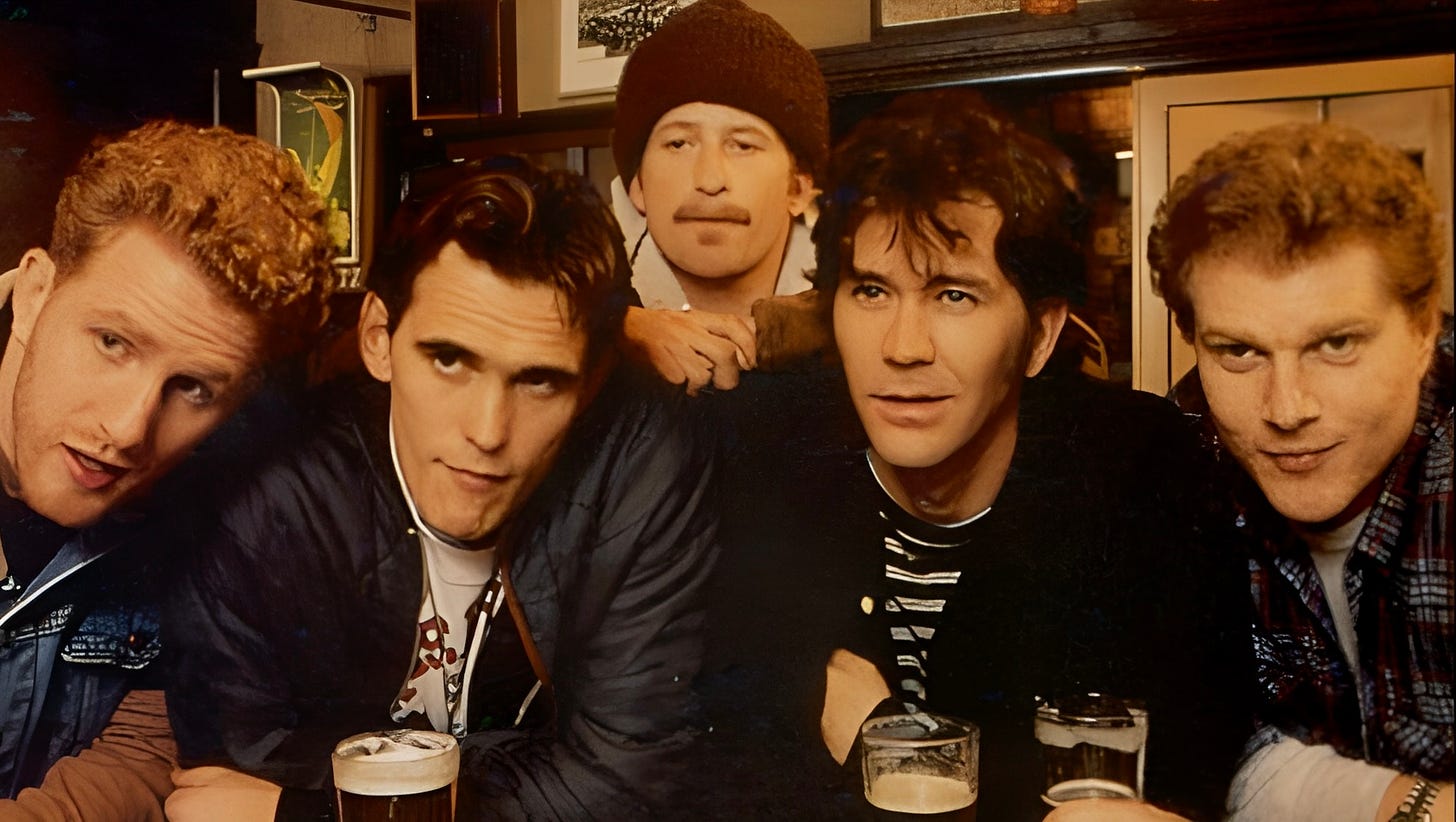
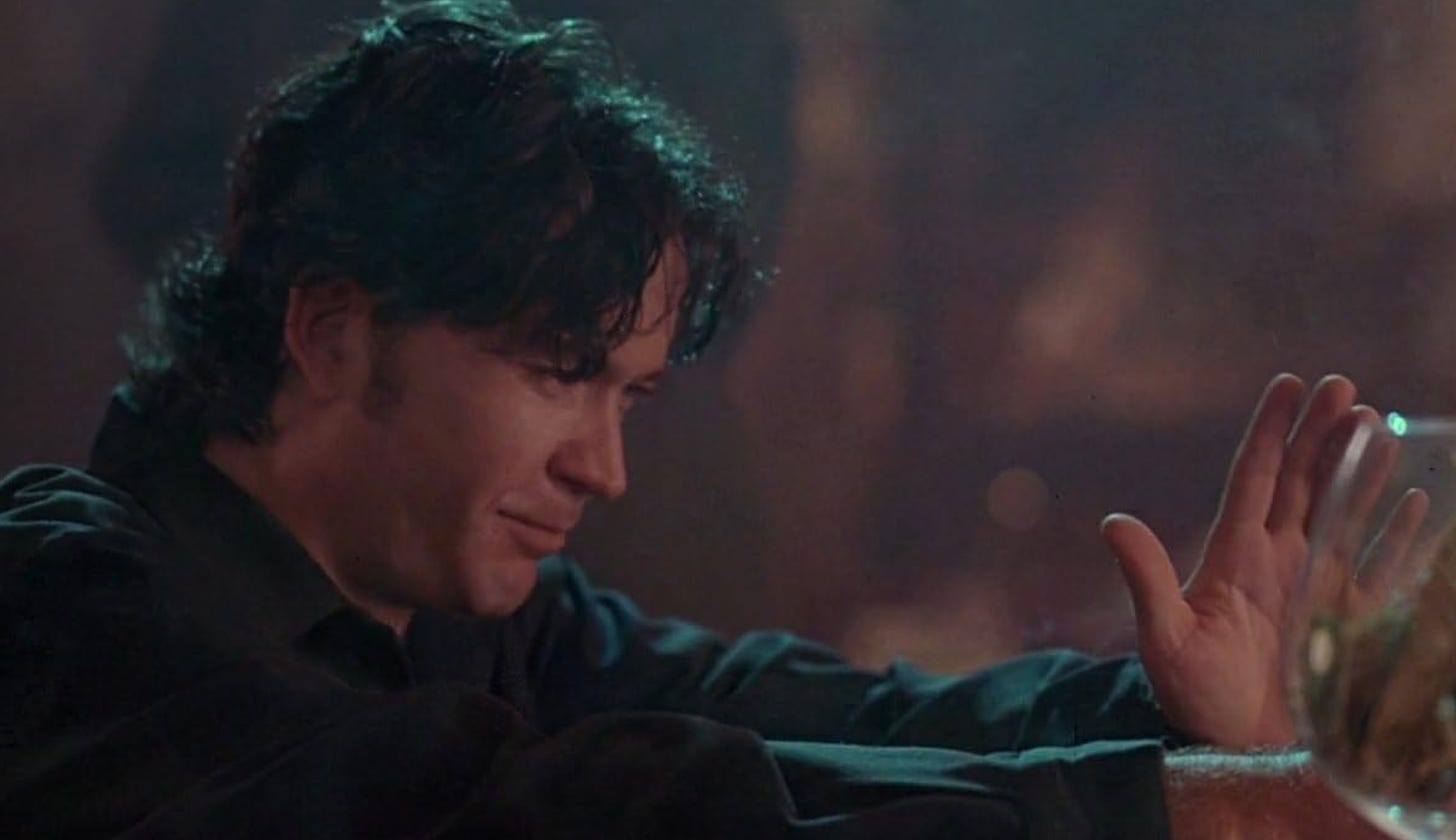
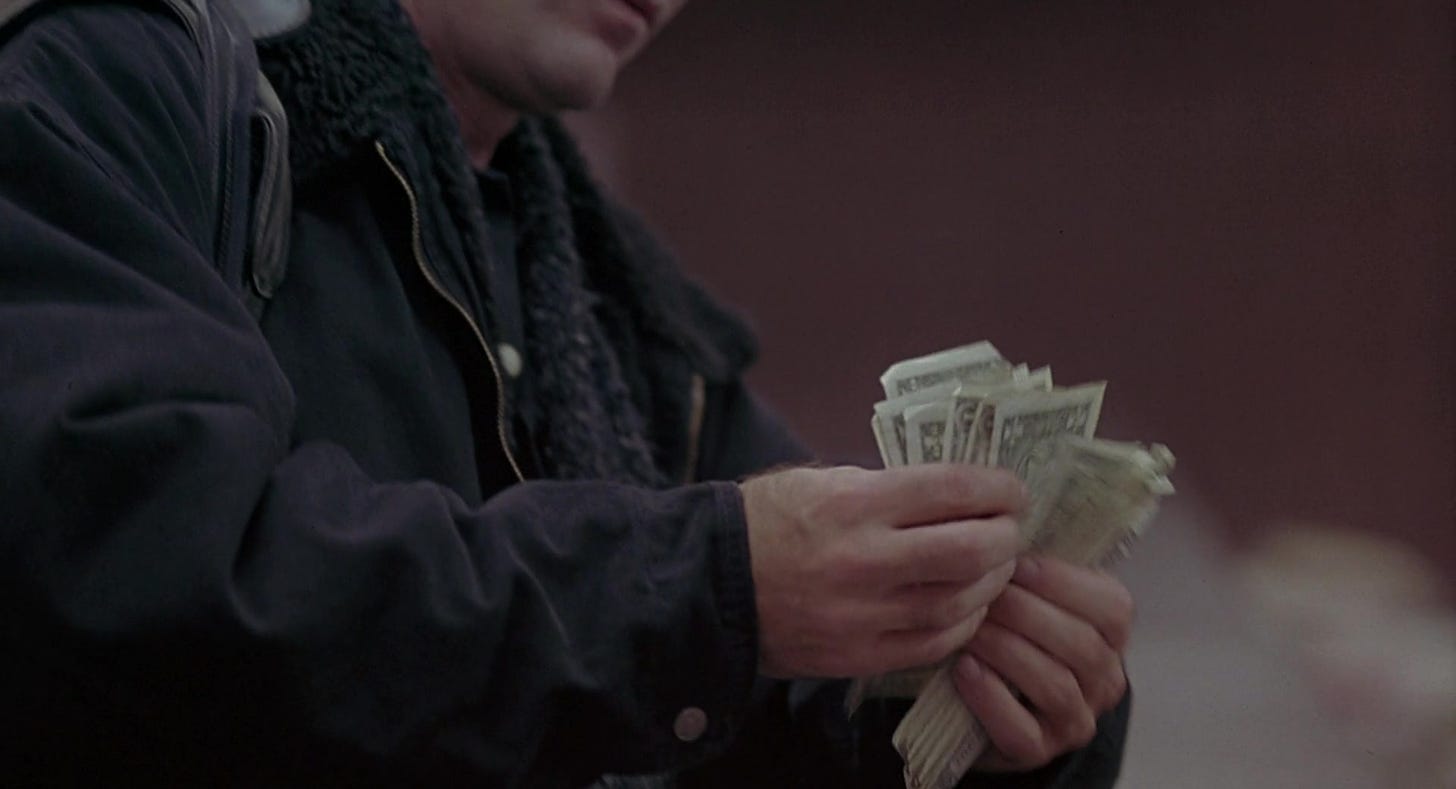
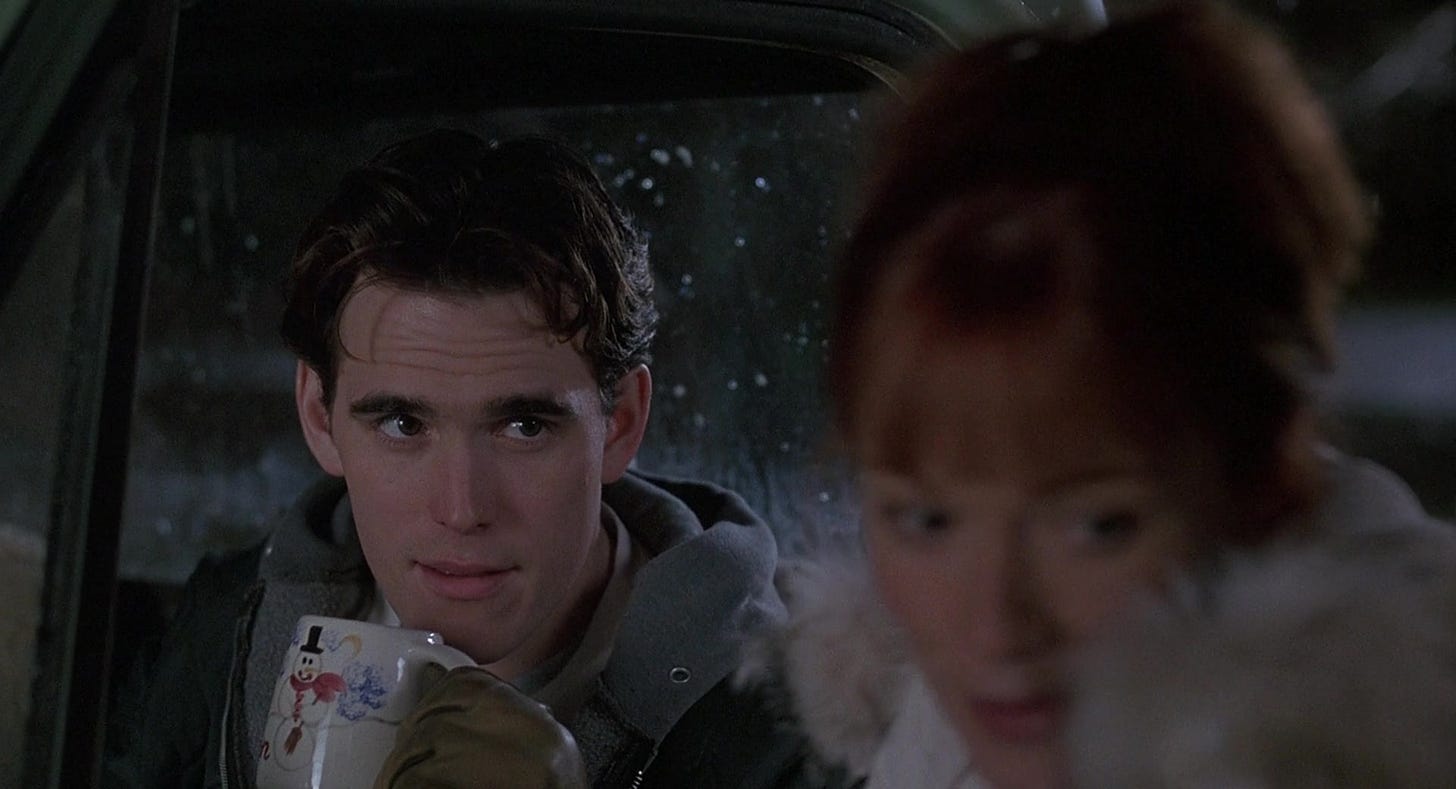
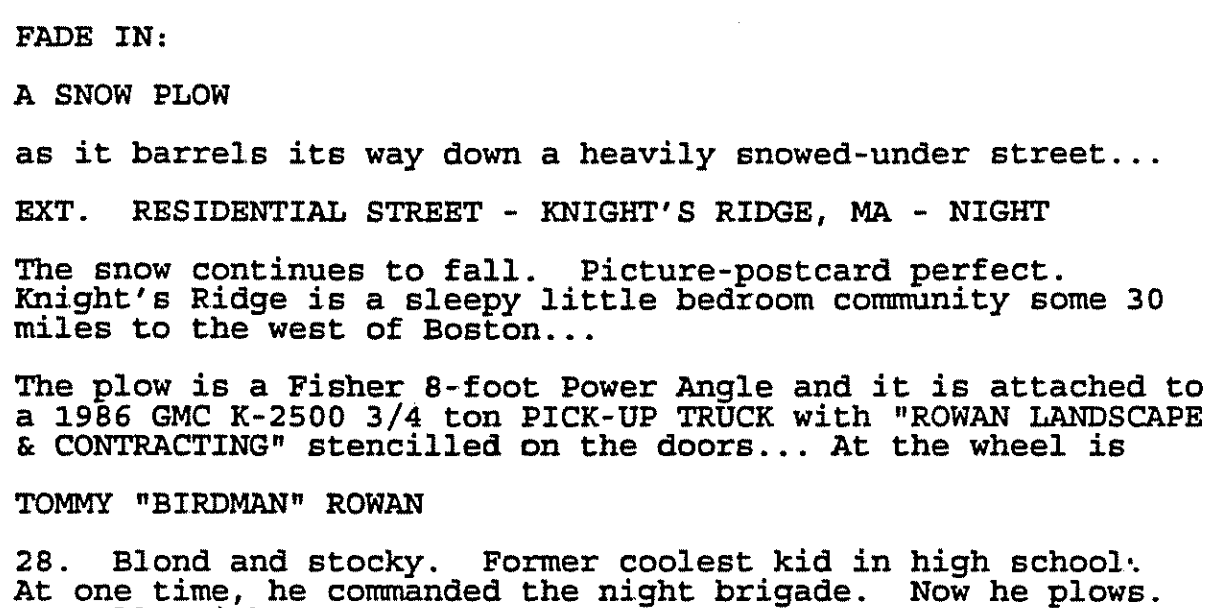
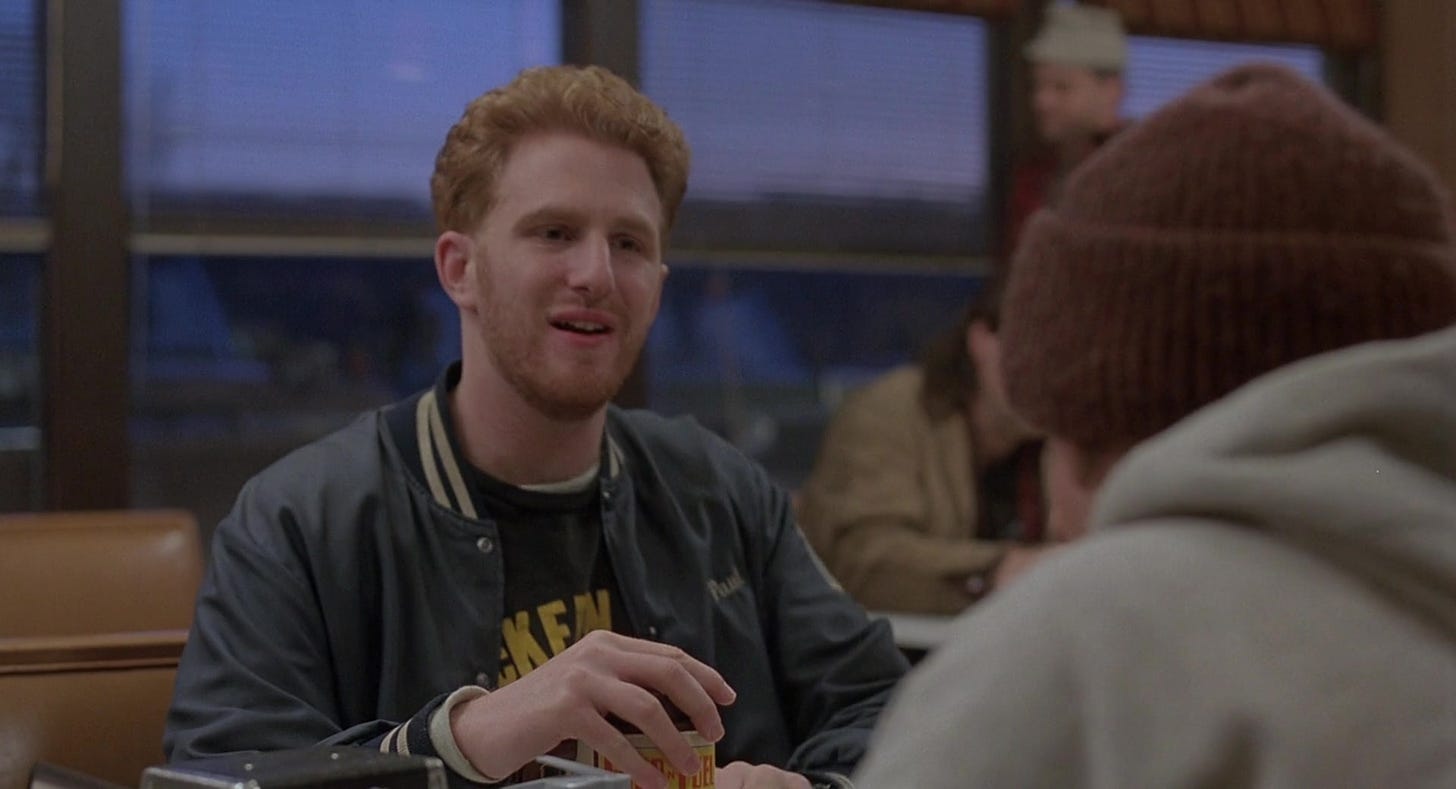

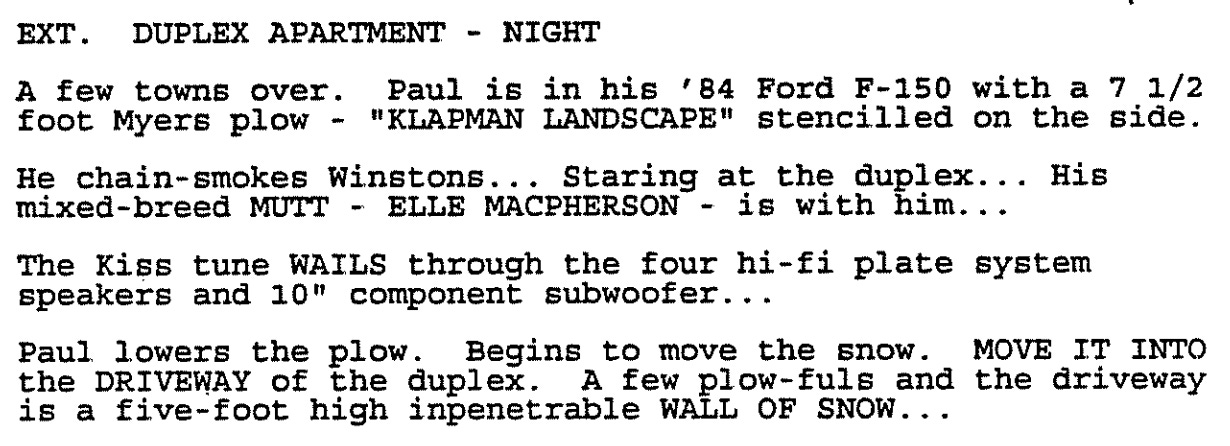
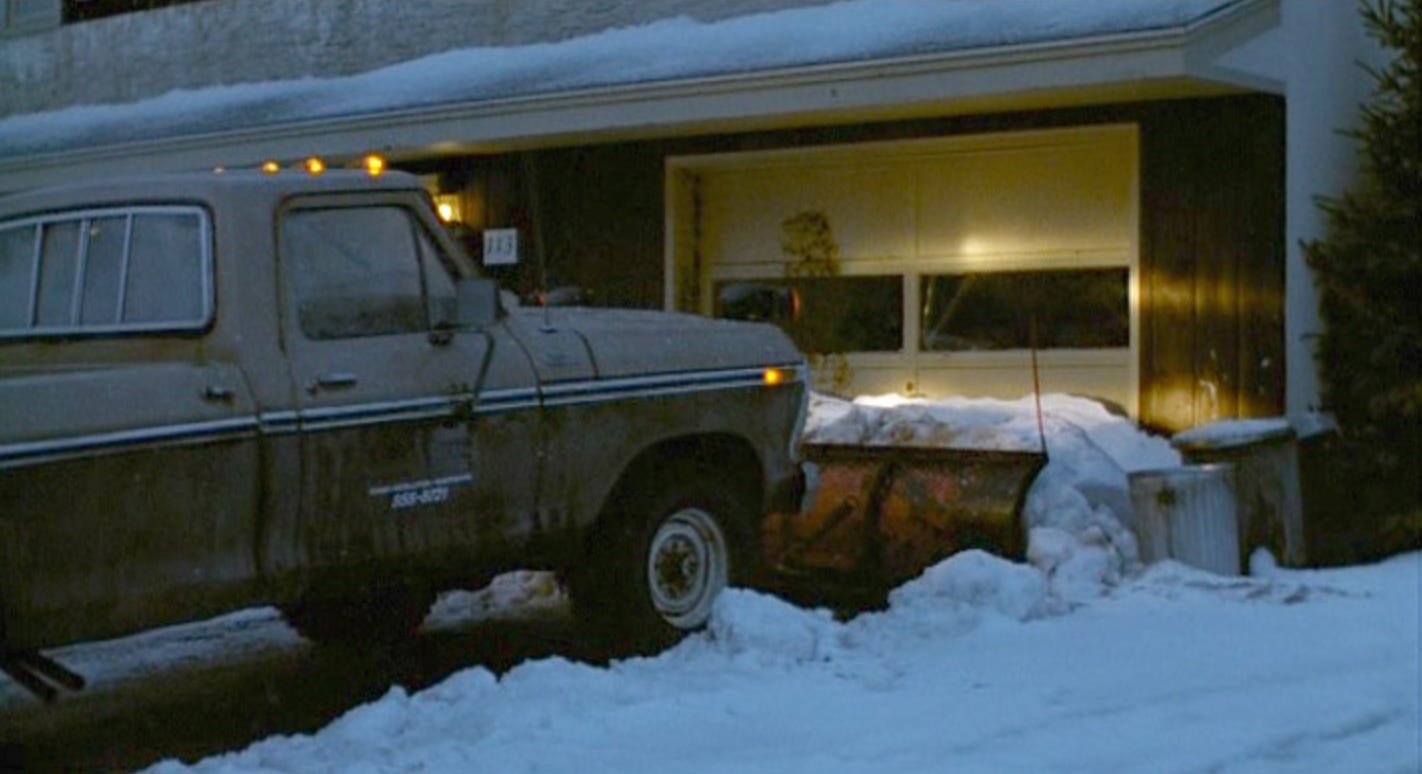
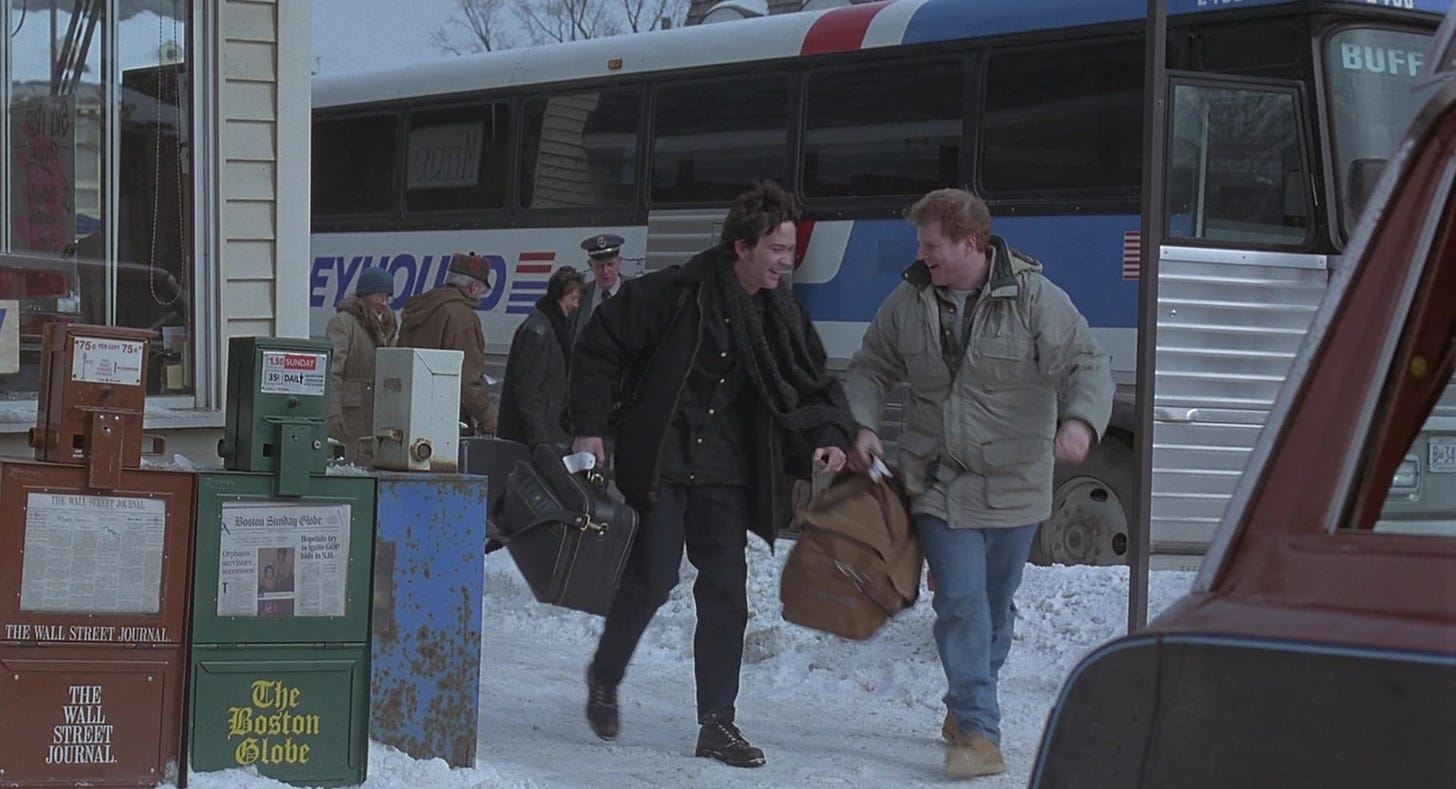

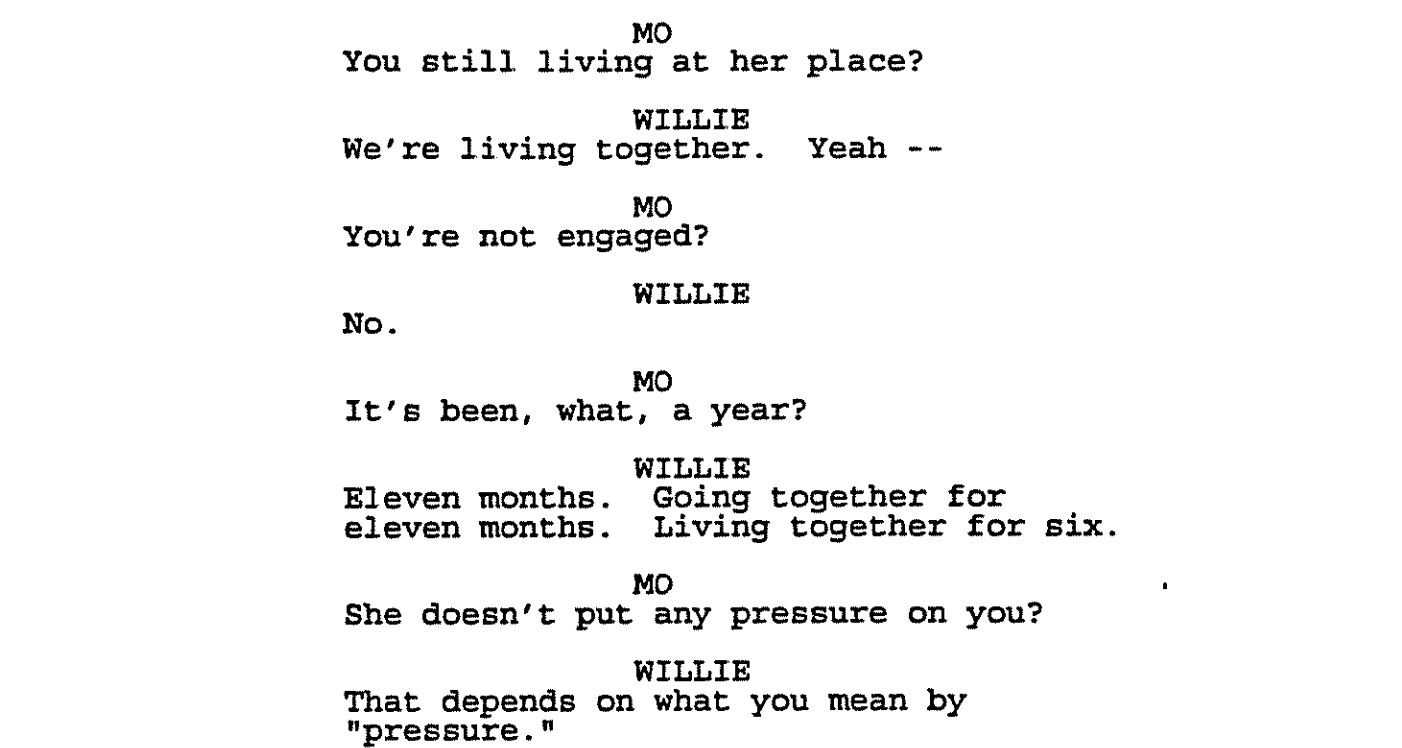
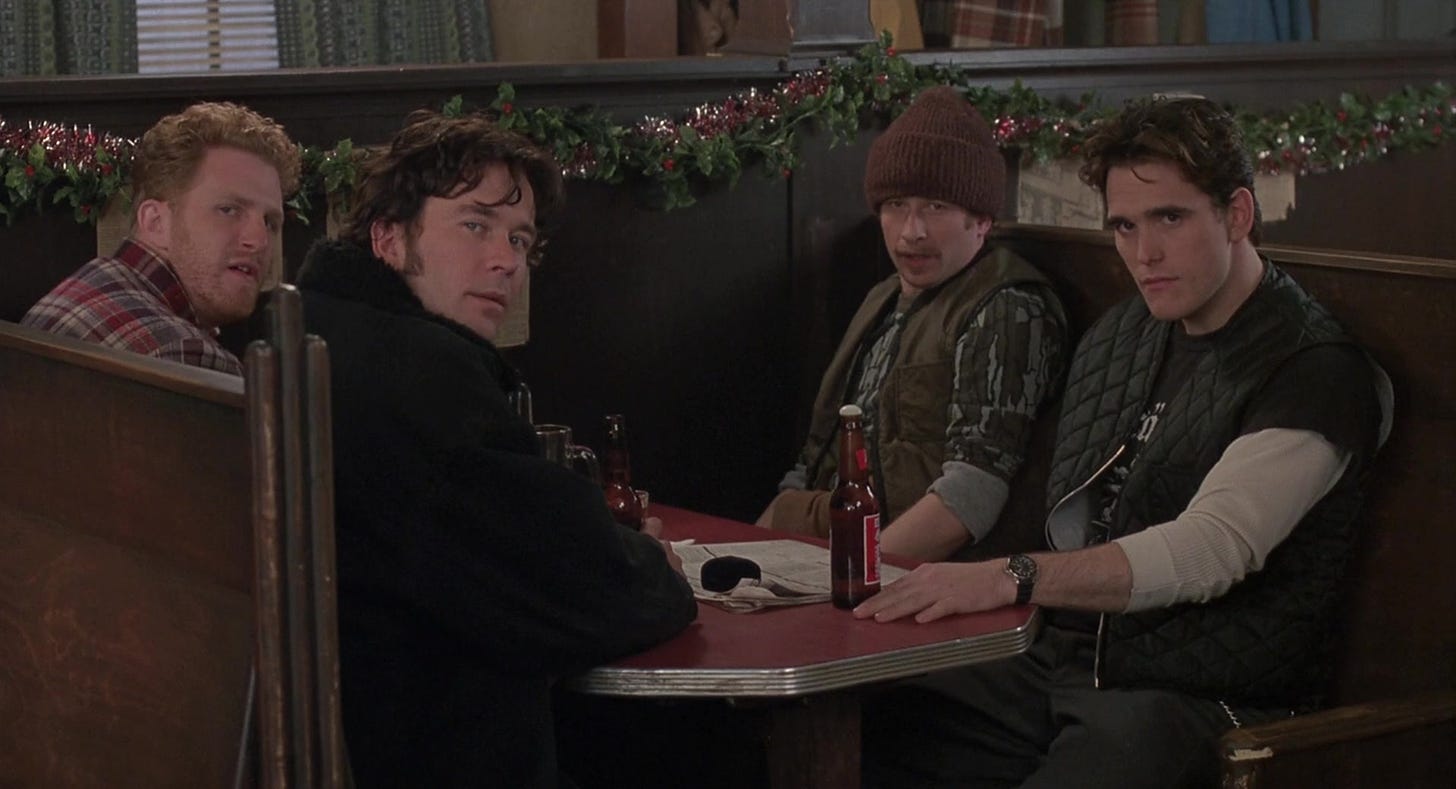

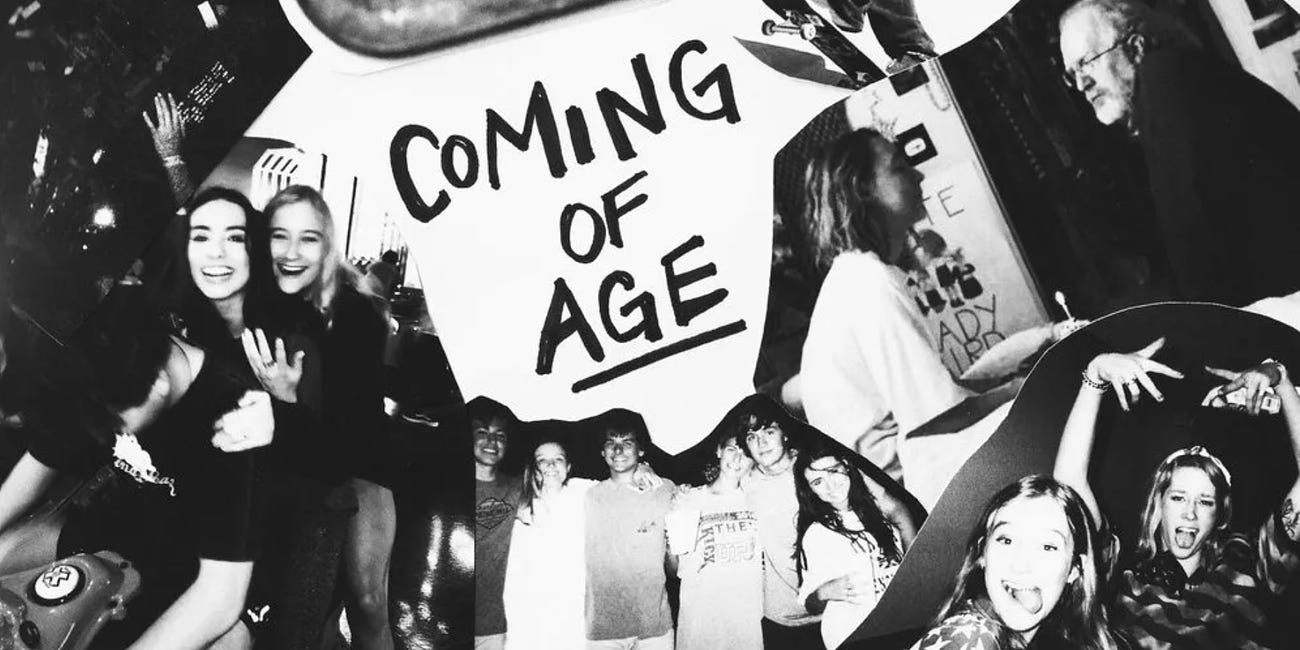

This is superb, Cole, really superb.
I've been thinking lately about Matt Dillon after seeing him in Rumble Fish, To Die For and generally coming across clips of his many films, like this one. Why did he not become the biggest star in the world? He worked consistently, but he never quite became the name above the title that you would expect from a guy who was an amazing actor and a big heartthrob at 17. Did he have limited range, make the wrong career decisions, have issues in his personal life, take too long of a hiatus at some point? I mean, he was the most electrifying presence in The Outsiders, a film with a ton of young talent, some of whom went on to become huge stars, most notably, Tom Cruise. I'd love to see a deep interview with him. Anyone else?